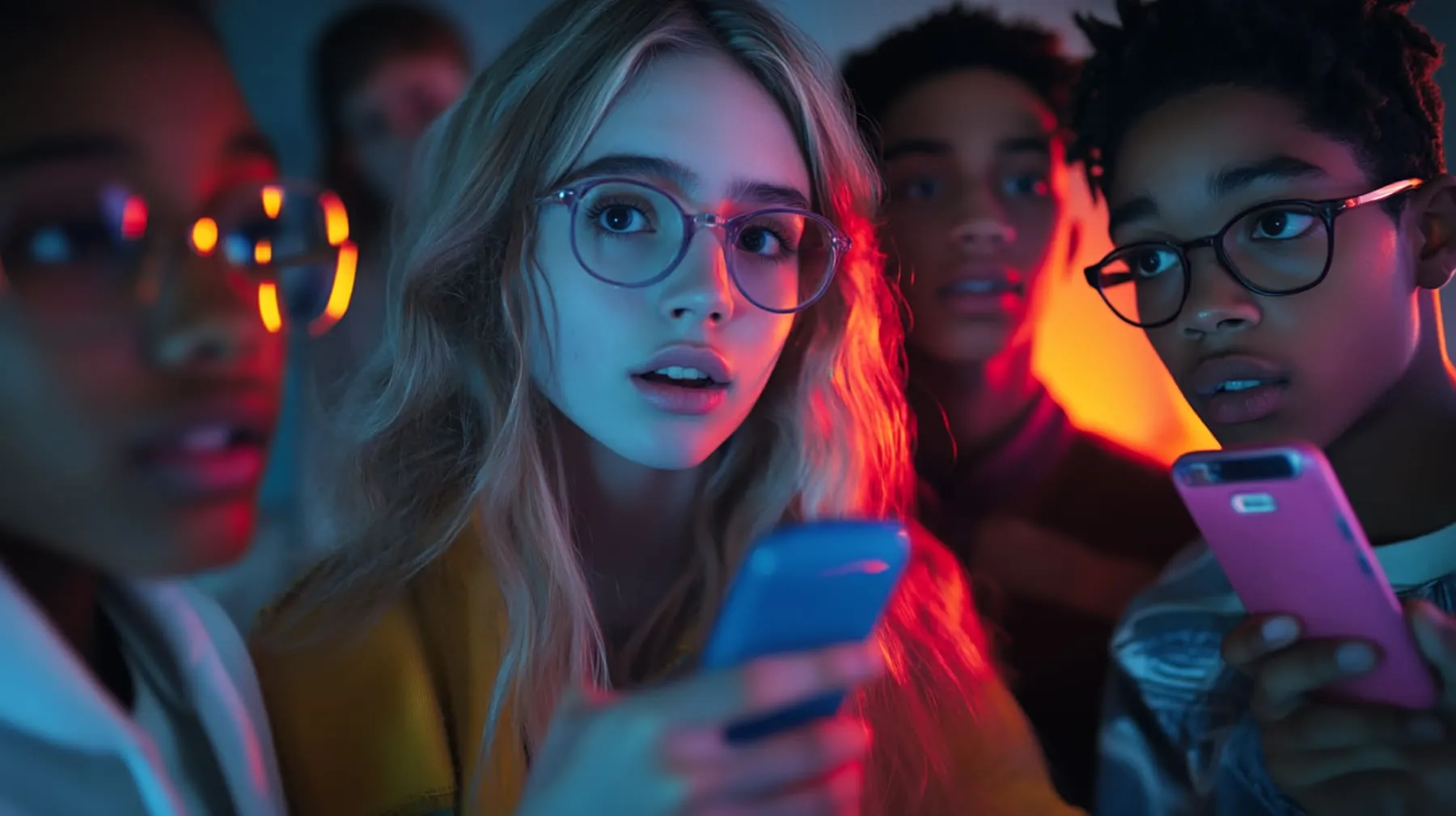Why is the newest generation so obsessed with social media?

Is Gen Z obsessed with social media—or just evolving with it?
Ask an older generation, and they might say Gen Z is “obsessed” with social media. They see young people glued to screens, endlessly scrolling through TikTok, Snapchat, and Instagram. But is it an obsession—or something more profound? What if social media is the natural evolution of how humans interact, learn, and express themselves? For Gen Z, social media isn’t just a distraction—it’s a public square, a classroom, and a career path.
More than scrolling: Social media as a tool for life
Gen Z’s relationship with social media is complex. Unlike older generations, who may view it as a superficial pastime, Gen Z perceives social media as an essential extension of reality. It’s where they:
- Learn: Platforms like TikTok and YouTube offer educational content, news updates, and skill-building videos, blending entertainment with learning.
- Connect: Friendships, communities, and activism thrive within digital spaces, fostering a sense of belonging.
- Work: Influencers, digital marketers, and content creators have transformed social media into full-fledged career paths.
At the same time, the downsides—comparison culture, mental health struggles, and algorithmic addiction—are undeniable. Yet, what makes Gen Z unique is their awareness of these challenges. They openly critique social media while remaining deeply immersed, making their relationship with it paradoxical and reflective.
The Fear of Missing Out (FOMO) and social validation
Social media platforms are designed to maximize engagement. Features like Snapchat streaks, TikTok trends, and Instagram stories create an environment where participation feels almost mandatory.
- FOMO: The pressure to stay “in the know” fuels a sense of missing out, making social media feel more essential than optional.
- Social validation: Engagement metrics—likes, comments, shares—can significantly influence self-esteem and personal identity.
However, Gen Z is notably self-aware of these traps. Unlike previous generations that passively consumed media, they actively critique the platforms they use, calling out toxic comparison culture while still participating.
The algorithm-driven reality
A fundamental difference between Gen Z and older generations lies in how they consume content. Boomers and Gen X relied on traditional media—TV, newspapers, radio—where the content was uniform. Gen Z, however, lives in an algorithm-driven world.
- Personalized experiences: TikTok’s For You Page (FYP) tailors content to hyper-specific interests, creating a unique feed for each user.
- Beyond traditional gatekeepers: Unlike older media that dictated content, social media algorithms respond to individual behaviors and preferences, making the experience feel personal and indispensable.
Mental health: A double-edged sword
Social media impacts mental health both positively and negatively:
- Positive: Platforms like Instagram have helped destigmatize mental health conversations, with influencers discussing anxiety, depression, and self-care openly.
- Negative: The curated perfection of social media often distorts reality, leading to self-esteem issues and social pressure.
Gen Z’s relationship with social media is complex. They critique its impact on mental well-being while still finding community and support within it. Many practice mindful consumption, taking “social media detoxes,” but often return due to the platforms’ deep integration into daily life.
Bridging the generational gap
The perception of “obsession” often stems from older generations misunderstanding how Gen Z experiences social media.
- Older generations: Established careers through steady, long-term paths, prioritizing in-person networking and relying on traditional media for growth and opportunities.
- Gen Z uses social media as a multifaceted tool for learning, networking, entertainment, activism, and even income generation.
The key disconnect? Older generations sometimes view their way as the only valid path. Yet, just as Boomers relied on TV and Millennials on early internet platforms, Gen Z is simply adapting to their environment, using the tools available to them.
The real challenge: Learning from each other
Rather than labeling Gen Z as “obsessed,” it would be more productive for older generations to understand why social media is integral to them. Similarly, Gen Z can recognize that previous generations found success and fulfillment without digital platforms.
Perhaps the conversation isn’t about which generation is right or wrong but how each can learn from the other. Social media isn’t going away—so it’s up to us to shape how we engage with it in a balanced and thoughtful way.
Frequently asked questions (FAQ)
Take Action: Empower Your Team to Understand Gen Z’s
Do you want to stay relevant?
Staying ahead in today’s fast-paced world means constantly learning and evolving. Book a workshop, keynote, or training session to gain deeper insights into this topic—or any other crucial to your industry. Whether you’re looking to upskill your team, spark new ideas, or stay ahead of trends, we’ve got you covered.
You may also like these articles
Explore our collection of articles decoding youth culture, Gen Z, and Gen Alpha.







